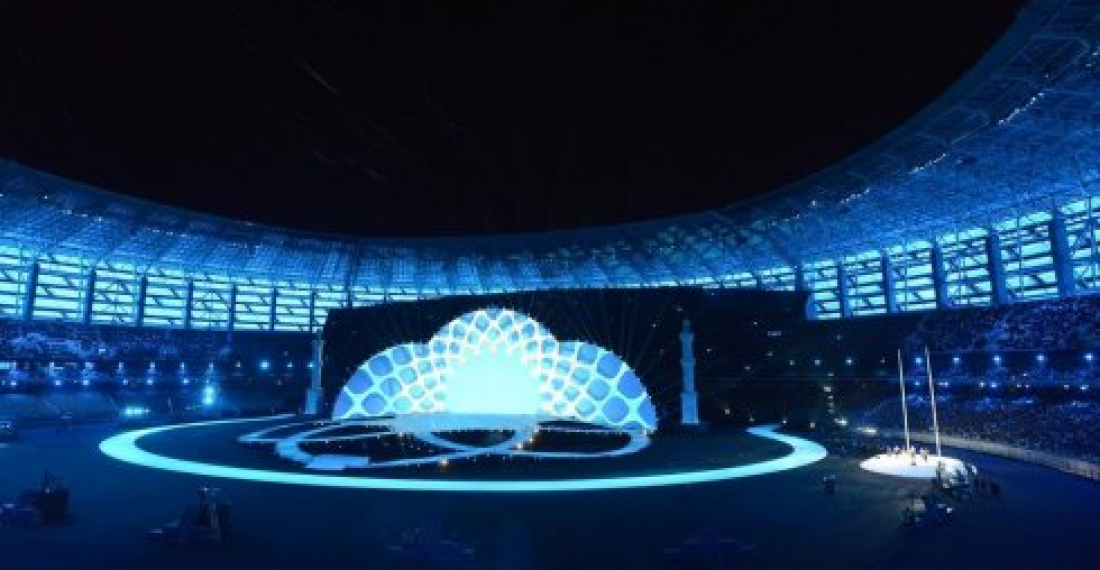The 4th Islamic Solidarity Games opened in Baku on Friday evening with a grand ceremony attended by the Azerbaijani President Ilham Aliyev and his wife.
During the games more than 3,000 athletes from 54 countries will be competing for 269 sets of medals over 10 days of competition across 21 different sports (Athletics and Para Athletics, Aquatics - Diving, Aquatics - Swimming, Aquatics - Water Polo, Basketball 3x3, Football, Gymnastics - Artistic, Gymnastics - Rhythmic, Wushu, Table Tennis, Handball, Judo and Blind Judo, Wrestling - Greco, Wrestling - Freestyle, Shooting, Tennis, Volleyball, Boxing, Zurkhaneh, Karate, Taekwondo and Weightlifting).
Athletes will vie for 23 sets of medals in 6 sports categories on May 13 - the day after the opening ceremony. Thirty-five medals will be competed for on May 17.
The Games' program includes competitions in new sport categories. Unlike previous Islamic Solidarity Games, the Baku 2017 will feature zurkhaneh, wrestling, judo, boxing, shooting, blind-judo, para-athletics, rhythmic and artistic gymnastics competitions. Team sports include water polo, volleyball, handball and football competitions.
Among individual sports will be athletics, swimming, diving, table tennis, tennis, taekwondo, weightlifting and wushu competitions. Instead badminton, equestrian, fencing competitions have been removed from the program.
source commonspace.eu with agencies
photo: Opening Ceremony of the 4th Islamic Solidarity Games took place in BAku on Friday, 12 May 2017 (picture courtesy of Trend News Agency)







